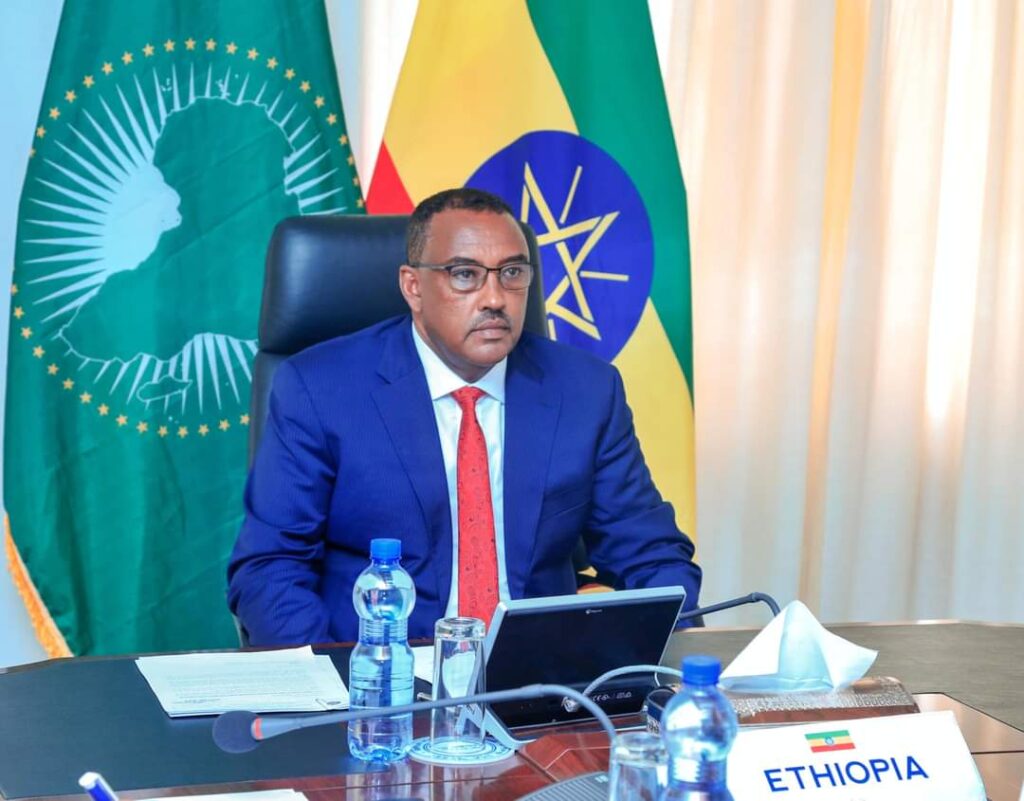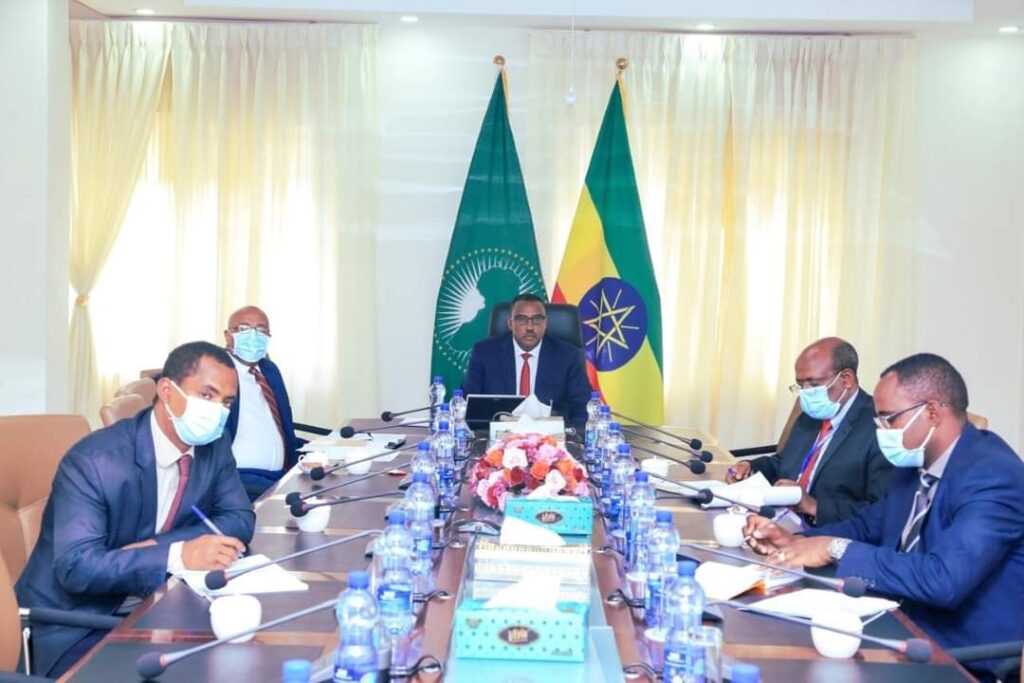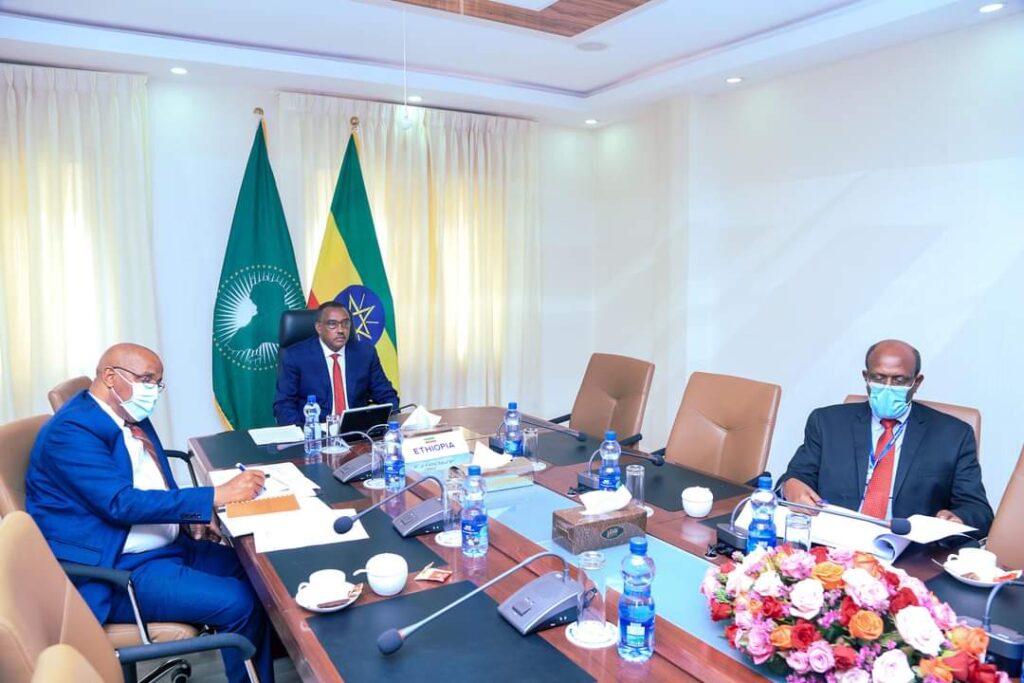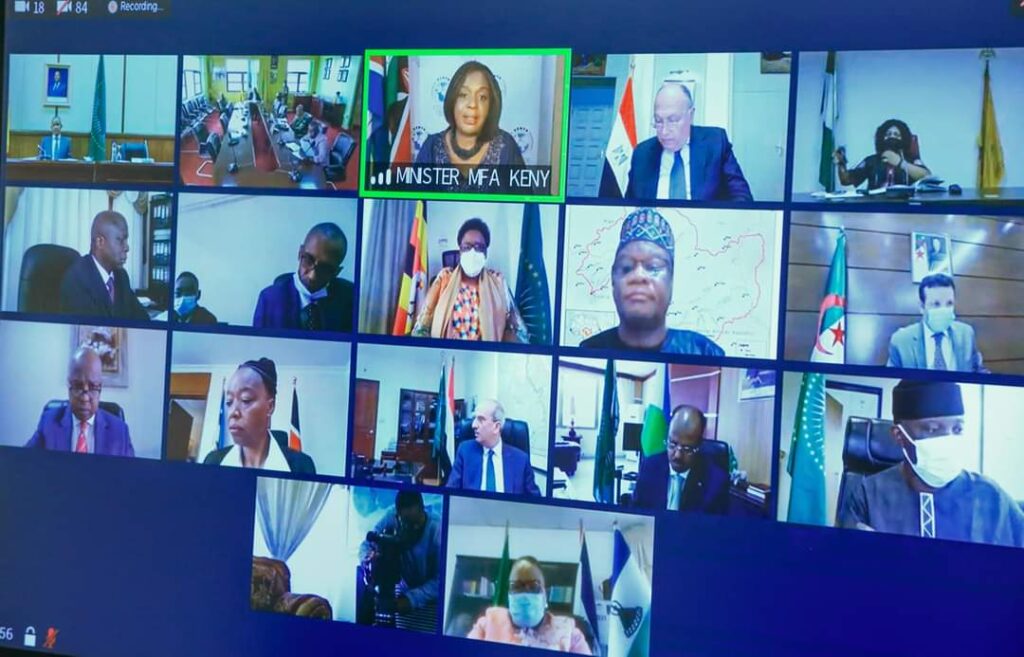H.E. Mr. Demeke Mekonnen Deputy Prime Minister and Minister of Foreign Affairs of Ethiopia made remarks on Thursday (March 18) at the ministerial meeting of the AUSPC on Peacekeeping in Africa: Emerging challenges and critical lessons for sustainable Peacekeeping operations. Please find his full speech below:
Madam Chairperson,
====
I would like to begin by congratulating you on your assumption of the AU-PSC Ministerial Chair, and thank you for organizing this high level discussion. It is an issue of great importance to our continent and African Troop and Police Contributing Countries. I thank all the briefers.
Let me also express our appreciation to all the peacekeepers and their support staff that are making the ultimate sacrifices to bring peace to our continent. We also wish to pay tribute and send sympathies to the families of those gallant service men and women fallen in the line of duty.
Madam Chairperson,
===
We all agree that one of the main foundations for the inception of multilateralism, particularly, formation of the United Nations in 1945 rested on maintenance of peace and security in the world. Although, the primary responsibility of ensuring peace and security was a mandate of the United Nations Security Council, Regional Mechanisms under the principles of subsidiarity have brought enormous effectiveness in addressing concerns of peace and stability, especially in Africa.
However, all Member States of the United Nations don’t have equal say on the modalities of bring peace and security, basically because of variation in their resource contributions. Troop Contributing Countries from our side of the world are paying the heaviest price in life and blood. However, as a matter of fact the capability of financing Peacekeeping Missions and Peace Support Operations seems to outweigh all other contributions including sacrifices in human lives. In this regard, I agree with speakers before me on the need for judicious appreciation of Africa’s contribution to the maintenance of international peace and security.
Madam Chairperson,
===
The longstanding UN peacekeeping practices have increasingly become incompatible with the current dynamics of global peace operations, which are exposing personnel on the ground to asymmetric and direct armed attacks. Our troops in peacekeeping missions are expected to do more and more with less and less enablers; including shortage of critical supplies, poor logistics and inadequate financing. Addressing these concerns is particularly relevant in the context of the COVID-19 pandemic.
I trust that it is time for the international system to recognize that since the first ever deployment of UN peacekeeping operation, the role and responsibility of peacekeepers have kept evolving much faster. Changes in role from observing ceasefires through military presence and the separation of combating forces; to participation of all rounded military, police, observers of all sorts etc. is growing.
In the context of these evolving realities, I wish to highlight the following as a unified message from our continent:
1. The process of the United Nations policy formulation and planning, as well as preparation of operational guidelines and training schemes for peacekeeping missions in Africa must be participatory, where the AUPSC and the AU Commission would contribute from their informed perspectives about facts on the ground.
2. The need for robust capability and better or rapid intervention, in the face of challenges including attacks from Improvised Explosive Device (IED) and direct confrontation with armed elements requires stronger coordination amongst African Troop Contributing Countries within the continent, the United Nations and possible bilateral or regional cooperation mechanisms.
3. Ensuring the full, effective and meaningful participation of women in peace operations must be prioritized. It is important that special attributes of women peacekeepers must be unleashed at all levels. For instance concerns with respect to the primary responsibility of Troop Contributing Countries in handling allegation of sexual exploitation and abuse by personnel on the ground would be handled with the requisite sensitivity by women peacekeepers.
4. Peacekeeping missions cannot leave positive legacy behind or complete their tasks without implementing adequate peace building work. In this regard, adoption of the United Nations 2020 Peace building Architecture and the commitment by AU-led peace operations for successful peace building work would yield more productive outcomes. Africa needs to promote the importance of providing institutional capacity building through peace building programs.
Madam Chairperson,
I wish to conclude by underscoring the significance of promoting African Common Position in resolving the challenges faced by Peacekeeping Missions in our continent. These Missions are operating under increasingly complex environment. It is also essential that the African Union, the United Nations, and Troop Contributing Countries undertake continuous consultations to harmonize their views and ensure fair participation at all levels of mandate preparation, renewal and implementation.
I thank you.
#MoFA







